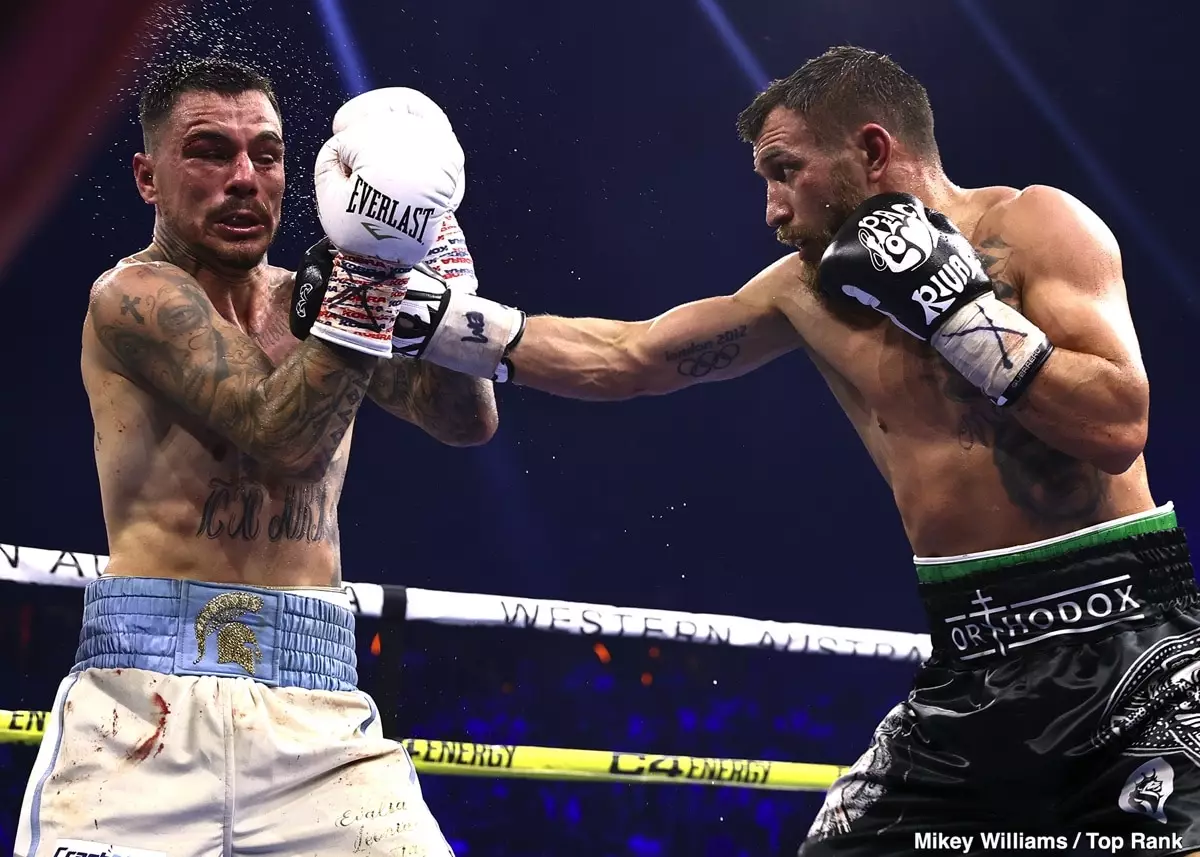Gervonta “Tank” Davis, the undefeated WBA lightweight champion, has set his sights on a high-profile clash with Vasily Lomachenko, the IBF titleholder. This potential matchup, however, is not as straightforward as it once would have been. Following a majority draw against Lamont Roach, Davis’s recent performance has raised questions about his readiness for such a significant fight. Despite the allure of unifying titles in a matchup that many boxing fans once clamored for, circumstances have altered the landscape, leaving both fighters and their teams to reassess their paths forward.
Davis’s team’s decision to reach out to Top Rank illustrates a yearning for a legacy-defining bout, but opting for Lomachenko instead of pursuing a rematch with Roach or a high-stakes showdown with Shakur Stevenson reveals a strategic gamble. The fact that Davis is exploring a fight with Lomachenko signals a lack of confidence in his previous performance. Following a draw that many in the boxing community viewed as a setback, it appears that Davis is cautious about taking risks that could jeopardize his undefeated record.
From a financial perspective, pursuing fights other than Lomachenko makes logical sense for Davis. A rematch with Roach or a bout against the rising star Stevenson likely presents a more lucrative opportunity. Lomachenko, at 37 years old and having not fought since last May, risks being more of a financial gamble than a guaranteed payday. The timing of a Lomachenko fight raises skepticism; he has seen better days, and his draw from the ring has made him somewhat of a forgotten figure within the division. As the boxing world shifts, so do the narratives that dictate matchmaking, and Davis’s team must contend with evolving fighter dynamics and fan interests.
Moreover, Davis’s mention of potential fight with Jake Paul illuminates a growing trend in boxing where money trumps the quest for titles. An engagement with Paul, while controversial, could pull in substantial revenue given the YouTuber-turned-boxer’s unpredictable drawing power. However, this highlights a troubling trend in the sport, where the focus on profitability might overshadow traditional sporting integrity.
On the other side of the ring, Lomachenko faces his own crossroads. After a period of inactivity, his aspirations must be muddled by doubts regarding his own physical condition and competitive edge. He could consider this matchup as a final opportunity to reclaim former glory, or as a risky venture that could do more harm than good to his legacy. The history of promotional hesitance—when Lomachenko was sidelined while Davis ascended the ranks—adds layers of complexity to any negotiations.
The skepticism surrounding Davis’s interest is palpable. It appears less about a genuine interest in unifying titles and more about seizing an opportunity against an aging opponent perceived as vulnerable. Lomachenko’s potential feelings of being “set up” could lead to further complicating this narrative, leaving fans to question whether the fight is more about profit margins than a genuine sporting contest.
As talks progress, the landscape of lightweight boxing appears to be in flux. Gervonta Davis, with a record of 30 wins and a solitary draw, needs to recalibrate his approach. The public’s appetite for high-stakes bouts continues to grow, and with betting odds favoring younger contenders, Davis’s interest in Lomachenko raises eyebrows.
The uncertainty surrounding these fighters’ decisions and the underlying motivations will shape their legacies for years to come. Whether Davis secures a lucrative matchup against Lomachenko, Rematch with Roach, or a surprising face-off against a media celebrity like Jake Paul remains to be seen. In boxing, as in life, timing can often be everything, and navigating the currents of fame, legacy, and profitability is a delicate dance. Fans can only watch eagerly as these narratives unfold.


Leave a Reply